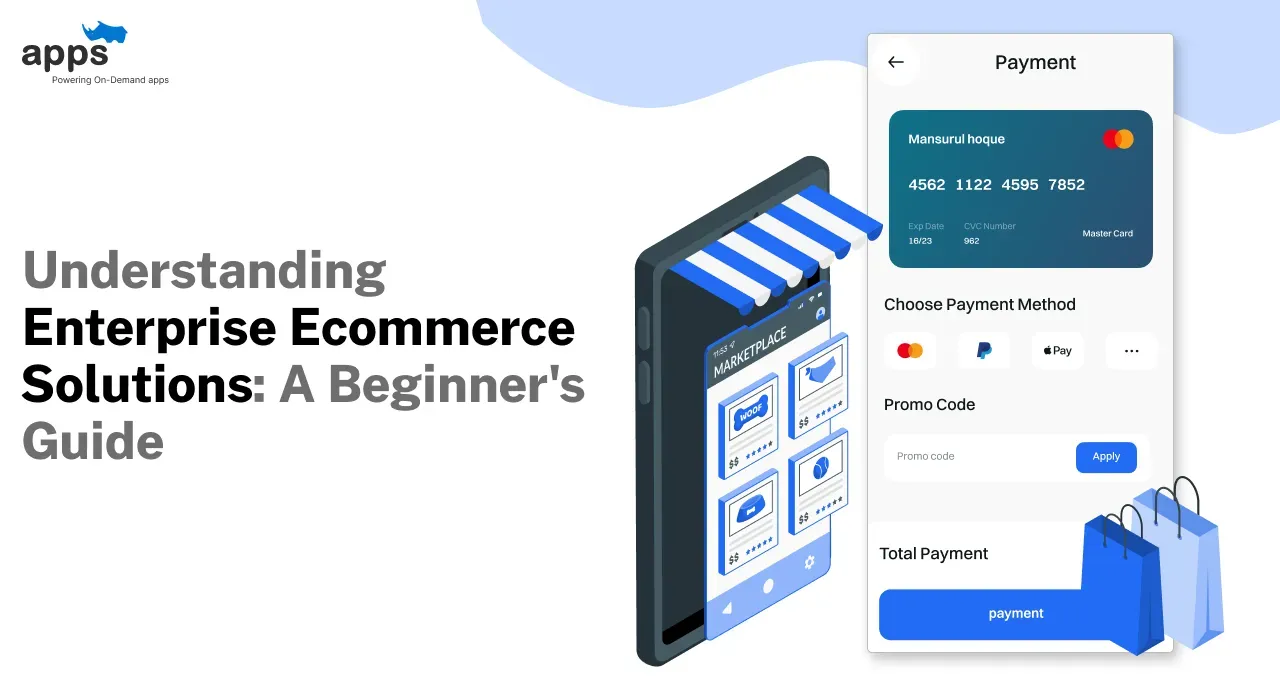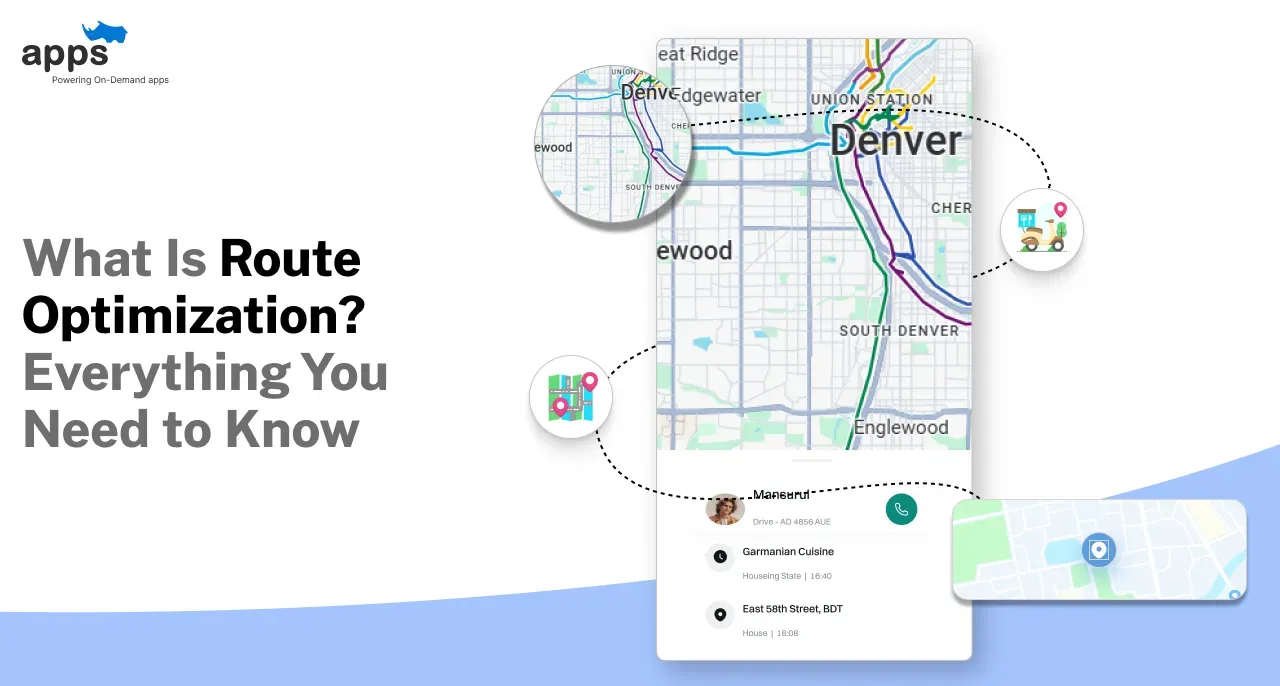- Evolving Trends in Ecommerce
- Benefits of Ecommerce Platform Development
- Factors to Consider in Developing Ecommerce Platforms
- Top Ecommerce Platforms to Consider
- Steps in Developing an Effective Ecommerce Platform
- Best Practices for Ecommerce Platform Development
- Conclusion
- Frequently Asked Questions (FAQs)
Table of Contents
Why Ecommerce Platform Development is Crucial for Success?

Ecommerce platform development is a crucial factor for achieving success in the digital marketplace. In today's fast-paced world, where consumers prefer the convenience of online shopping, having a robust ecommerce platform is essential for businesses to thrive.
By providing a seamless purchasing experience, multiple payment options, and a mobile-friendly design, ecommerce platforms significantly improve customer satisfaction.
Moreover, these platforms offer sales and marketing tools that aid in driving revenue and customer acquisition. Scalability and flexibility are also key benefits, allowing businesses to adapt and grow as demand increases.
However, there are challenges to overcome, such as limited customization options, security concerns, and the need for technical expertise.
Despite these challenges, investing in ecommerce platform development is a wise choice to ensure long-term success and remain competitive in the ever-evolving digital landscape.
Evolving Trends in Ecommerce

With the advent of technology, the business landscape has witnessed a significant shift from traditional brick-and-mortar stores to online platforms.
Ecommerce has paved the way for businesses to reach a wider audience and capitalize on the convenience and accessibility offered by the internet.
Moreover, mobile ecommerce has emerged as a dominant force, with more and more users turning to their smartphones and tablets for their shopping needs.
This shift necessitates the development of ecommerce platforms that are optimized for mobile devices to ensure a seamless user experience.
The Rise of Mobile Ecommerce
Mobile ecommerce, or m-commerce, has revolutionized the way people shop. With the increasing penetration of smartphones, consumers now can browse and make purchases anytime, anywhere.
Statistics reveal that the majority of online shopping traffic and sales are generated from mobile devices. Therefore, businesses must prioritize the optimization of their ecommerce platforms for mobile to cater to this growing trend.
Importance of Mobile-Optimized Websites
Creating a mobile-friendly website is crucial for the success of ecommerce ventures. A mobile-optimized website ensures that your online store is easily accessible and user-friendly on smartphones and tablets.
It involves designing a responsive website that automatically adjusts its layout and content to provide an optimal experience across different screen sizes.
By providing a seamless mobile shopping experience, businesses can attract more customers, increase sales, and stay ahead of the competition.
Benefits of Ecommerce Platform Development

Ecommerce platform development plays a pivotal role in the success of an online business. By leveraging the capabilities of a well-designed ecommerce platform, businesses can unlock a range of advantages that contribute to their growth and profitability.
Improving Customer Experience
A robust ecommerce platform allows businesses to provide an enhanced shopping experience to customers.
From intuitive navigation and easy product search features to personalized recommendations and smooth checkout processes, an optimized ecommerce platform ensures that customers can find what they need quickly and easily.
This seamless experience not only keeps customers engaged but also fosters loyalty and repeat purchases.
Growing the Customer Base
An effective ecommerce platform serves as a powerful tool for expanding the customer base. With the ability to reach a global audience, businesses can tap into new markets and attract customers from different geographical locations.
Furthermore, a well-optimized platform enables businesses to implement effective marketing strategies such as search engine optimization (SEO), social media integration, and email marketing, all of which contribute to attracting and retaining customers.
Enhancing Marketing Efforts
Ecommerce platforms are equipped with built-in marketing features that empower businesses to promote their products and services effectively.
From customizable promotional banners and discounts to email marketing campaigns and customer loyalty programs, an ecommerce platform provides the necessary tools to engage with customers and drive sales.
Moreover, analytics and reporting capabilities help businesses monitor and assess the effectiveness of their marketing efforts, enabling them to make data-driven decisions to improve their strategies.
Increasing Sales and Revenue
One of the primary objectives of any ecommerce business is to boost sales and generate revenue.
An optimized ecommerce platform facilitates this by offering a seamless shopping experience, streamlining the checkout process, and incorporating persuasive call-to-action elements.
Moreover, by leveraging the power of cross-selling and upselling techniques, businesses can increase the average order value and maximize their sales potential.
Additionally, integrated payment gateways and secure transaction processing inspire trust in customers, leading to improved conversion rates and higher revenue.
Suggested Reading: When is the Right Time for Ecommerce Software Development?
Streamlining Business Operations
Efficient ecommerce platform development streamlines various aspects of business operations, saving time and resources.
A well-designed platform automates processes such as inventory management, order fulfillment, and customer support, reducing the need for manual intervention and minimizing the likelihood of errors.
Moreover, integration with third-party tools and services, such as accounting software and shipping providers, simplifies administrative tasks and ensures smooth operations.
By integrating all these functionalities into a single platform, businesses can increase productivity, improve efficiency, and focus on core aspects of their operations.
Factors to Consider in Developing Ecommerce Platforms
Developing an ecommerce platform involves careful consideration of various factors to ensure its success and effectiveness.
By addressing these factors, businesses can overcome challenges and create a platform that aligns with their goals and objectives.
Understanding Website Requirements
Before embarking on the development process, it is essential to gain a clear understanding of the business requirements and goals.
This includes defining the target market, identifying the specific product offerings, and outlining the overall website design and user experience expectations.
By comprehensively understanding these requirements, businesses can develop an ecommerce platform that caters to their unique needs and resonates with their target audience.
The Significance of Hiring Ecommerce Developers
Developing a sophisticated and user-friendly ecommerce platform requires technical expertise and experience.
While there are DIY platforms available, it is advisable to engage professional ecommerce developers who possess the necessary skills and knowledge to build a robust platform.
Ecommerce developers can provide valuable insights, ensure best coding practices, and integrate the necessary features and functionalities to create a seamless user experience.
Moreover, hiring professionals allows businesses to focus on their core activities while leaving the technical aspects of platform development in capable hands.
The Role of Search Engine Optimization (SEO) in Ecommerce Platform Development
Search Engine Optimization (SEO) is a critical aspect of ecommerce platform development.
A well-optimized ecommerce platform ensures that your website ranks higher in search engine results, driving organic traffic and increasing visibility to potential customers.
This involves implementing relevant keywords, optimizing product descriptions and metadata, improving page load speed, and ensuring mobile responsiveness.
By prioritizing SEO in platform development, businesses can attract targeted traffic and improve their chances of conversion.
The Challenge of Ensuring Website Security
In an era where data breaches and cyber threats are prevalent, ensuring the security of an ecommerce platform is of paramount importance.
Customers must feel confident in sharing their personal and financial information when making online purchases.
Implementing robust security measures such as encryption, secure payment gateways, and regular security audits is essential to safeguard customer data.
Building a secure ecommerce platform fosters trust, protects customer privacy, and safeguards the reputation of the business.
Top Ecommerce Platforms to Consider
Choosing the right ecommerce platform for your business is crucial for success. Several ecommerce platforms offer a wide range of features and functionalities designed to meet the unique needs of different businesses.
Here, we will explore some of the top ecommerce platforms and provide a comparison of their key features.
AppsRhino

AppsRhino is a comprehensive ecommerce platform that offers a wide range of features and capabilities designed to support businesses of all sizes. It provides an end-to-end solution for businesses looking to establish and grow their online presence.
Here are some key features and benefits of AppsRhino:
- Customizable design: AppsRhino allows businesses to create personalized and branded online stores with a user-friendly interface. It offers a range of pre-built templates and customization options to ensure the store aligns with the business's branding and style.
- Mobile optimization: With AppsRhino's mobile-first approach, businesses can create mobile-responsive stores that provide seamless shopping experiences on smartphones and tablets. This is crucial as mobile commerce continues to grow rapidly.
- Multichannel selling: With AppsRhino, businesses can sell across multiple channels, including websites, mobile apps, online marketplaces, and social media platforms. This omnichannel approach helps maximize the reach and sales potential.
- Inventory management: AppsRhino offers robust inventory management capabilities, including tracking product availability, updating stock levels in real time, and managing multiple warehouses. This ensures accurate stock information and efficient order fulfillment.
- Payment and shipping options: The platform integrates with multiple payment gateways, allowing businesses to offer a variety of payment options to customers. Additionally, AppsRhino supports integrations with popular shipping providers to streamline the shipping process.
- Marketing and analytics: AppsRhino provides built-in marketing tools to help businesses promote their online stores. It includes features such as email marketing, SEO optimization, and social media integrations. The platform also offers comprehensive analytics and reporting capabilities to track sales, customer behavior, and marketing performance.
- Security and scalability: AppsRhino prioritizes security and ensures that the platform is equipped with robust encryption and data protection measures. Additionally, it offers scalability to support businesses as they grow and handle increasing amounts of traffic and transactions.
WooCommerce
WooCommerce is a popular ecommerce platform built on the WordPress content management system. It provides a flexible and customizable solution for businesses of all sizes.
With a wide range of extensions and themes, WooCommerce allows businesses to create and personalize their online stores according to their specific requirements.
Moreover, it seamlessly integrates with the WordPress ecosystem, making it easy to manage products, orders, and customers.
Pros:
- Extensive customization options
- Easy integration with WordPress
- Large user community for support
- Wide range of extensions and plugins available
Cons:
- Requires additional setup and hosting
- May require technical expertise for full customization
Shopify

Shopify is a cloud-based ecommerce platform that offers an all-in-one solution for businesses looking to establish and grow their online presence.
It provides a user-friendly interface, making it accessible to both beginners and experienced users. Shopify offers a range of professionally designed templates and provides hosting, security, and payment processing services.
Additionally, it offers extensive app integrations to further enhance the functionality of the online store.
Pros:
- User-friendly interface
- All-in-one solution with hosting, security, and payment processing
- Extensive app integrations are available
- 24/7 customer support
Cons:
- Limited customization options
- Transaction fees on certain payment gateways
- Costly for businesses with high sales volume
BigCommerce
BigCommerce is a comprehensive ecommerce platform that caters to businesses of all sizes. It offers a range of powerful features, including advanced marketing tools, SEO capabilities, and multichannel selling options.
BigCommerce provides a robust and scalable platform, allowing businesses to grow and expand without limitations.
Additionally, it offers built-in integrations with popular payment gateways and shipping providers, streamlining the customer experience.
Pros:
- Powerful built-in marketing tools
- Scalability for businesses of all sizes
- Seamless integration with popular payment gateways and shipping providers
- 24/7 customer support
Cons:
- The learning curve for beginners
- Some advanced features require technical expertise
- Monthly fee structure based on sales volume
Magento
Magento is an open-source ecommerce platform that offers a high level of customization and flexibility. It provides an extensive range of features and functionalities, making it suitable for businesses with complex requirements.
With Magento, businesses have full control over their online stores and can tailor the platform to their specific needs. Moreover, it offers a large library of extensions and themes to enhance the functionality and design of the online store.
Pros:
- High level of customization and flexibility
- Open-source platform with a large community of developers
- Scalable for businesses of all sizes
- Extensive range of extensions and themes available
Cons:
- Requires technical expertise for development and maintenance
- Hosting and security measures need to be self-managed
- Complexity can lead to longer development time
Squarespace

Squarespace is a user-friendly ecommerce platform that provides an intuitive interface and beautifully designed templates. It is perfect for businesses that focus on aesthetics and visual appeal.
Squarespace offers a range of features, such as customizable product pages, inventory management, and marketing tools. It also provides built-in SSL security and supports multiple payment gateways.
Pros:
- Beautifully designed templates
- User-friendly interface with drag-and-drop functionality
- A decent range of ecommerce features
- Built-in SSL security
Cons:
- Limited third-party integrations are available
- Fewer customization options compared to other platforms
- Transaction fees for some payment gateways
Steps in Developing an Effective Ecommerce Platform
Developing an ecommerce platform involves several crucial steps that contribute to its overall effectiveness and success. By following these steps, businesses can ensure they have a well-designed and fully functional platform.
Step 1
Define Website Goals
Before starting the development process, it is crucial to define the goals and objectives of the ecommerce website. These goals will shape the development strategy and influence the design, functionality, and marketing efforts.
Whether it is driving sales, expanding the customer base, or enhancing brand visibility, having clear goals in mind will guide the development process.
Step 2
Create a Website Blueprint
A website blueprint, also known as a wireframe, provides a visual representation of the website's layout and structure.
It acts as a blueprint or roadmap for the development process, outlining the various pages, their hierarchy, and the overall user flow. Creating a website blueprint helps in visualizing the end product and streamlining the development process.
Step 3
User Interface (UI) and User Experience (UX) Design

The user interface (UI) and user experience (UX) design are critical components of an ecommerce platform.
The UI design focuses on creating a visually appealing and user-friendly interface, while the UX design ensures a seamless and intuitive user experience.
Both aspects play a crucial role in attracting and retaining customers, as well as facilitating their journey through the online store.
Step 4
Website Development
The website development stage involves transforming the design and functionality specifications into a fully functional website.
This includes coding the frontend and backend of the website, incorporating the desired features and functionalities, and ensuring compatibility across different devices and browsers.
The development process should adhere to best coding practices and ensure the website is optimized for performance and speed.
Step 5
Set Up Website Payment Systems
An essential aspect of ecommerce platform development is setting up secure and reliable payment systems. Integrating payment gateways that support various payment methods provides customers with flexibility and convenience.
It is crucial to select trusted and reputable payment providers that offer secure transaction processing and protect customer financial information.
Step 6
Testing and Quality Assurance
Testing and quality assurance are crucial steps in ensuring the reliability and functionality of the ecommerce platform.
Thoroughly testing the website across different devices and browsers helps identify any bugs, errors, or issues that need to be addressed before the website goes live.
It is essential to conduct comprehensive testing of all functionalities, including product catalog, shopping cart, payment processing, and user registration.
Suggest Reading: eCommerce Platform Development: Key Features and Benefits
Best Practices for Ecommerce Platform Development

Developing an ecommerce platform with best practices in mind is essential for creating an effective and successful online store.
By implementing these best practices, businesses can maximize user engagement, improve conversion rates, and enhance overall customer satisfaction.
Consistent User Experience Across all Platforms
Consistency in user experience is crucial for ecommerce platforms. Whether customers access the website through desktop computers, smartphones, or tablets, the experience should remain consistent across all platforms.
This includes ensuring consistent design elements, navigation, and functionality to provide a seamless experience and avoid confusion.
Responsive Website Design
With the increasing use of mobile devices for online shopping, having a responsive website design is essential.
A responsive design automatically adjusts the website layout and content according to the screen size, providing an optimal viewing experience on different devices. This ensures easy navigation, readability, and usability, irrespective of the device used.
Integrating Social Media Platforms into the Website
Social media integration enables businesses to leverage the power of social media to drive traffic and increase brand visibility.
Integrating social sharing buttons, embedding Instagram feeds, and implementing social login options can significantly enhance the user experience.
Moreover, it facilitates easy sharing of products and content, expanding the reach and potential customer base.
Offering Multiple Payment Options
Providing customers with a variety of secure and convenient payment options is crucial for ecommerce platforms.
Offering popular payment methods such as credit cards, digital wallets, and alternative payment options ensures that customers can choose the method they prefer.
This flexibility increases the likelihood of a completed purchase and minimizes cart abandonment.
Streamlining Checkout Process
A smooth and efficient checkout process is vital for reducing cart abandonment rates. Simplifying the checkout process by minimizing form fields, reducing page load time, and offering guest checkout options can significantly improve the conversion rate.
Additionally, incorporating trust symbols, displaying shipping and tax information upfront, and providing real-time order status updates can instill confidence in customers and enhance their overall shopping experience.
Conclusion
In conclusion, developing a robust ecommerce platform is integral for businesses seeking to thrive in the increasingly digital marketplace.
With consumers progressively gravitating towards online shopping, a well-designed platform ensures an enhanced shopping experience and improved customer satisfaction.
Effective ecommerce platforms not only streamline business operations but also escalate sales revenue, foster customer base growth, and amplify marketing efforts.
Despite challenges like securing customer data and limited customization options, these platforms' benefits invariably outweigh the drawbacks.
Prioritizing mobile-optimization, considering robust security measures, and integrating with social media are among the best practices to follow during development.
In this evolving digital landscape, adopting an effective ecommerce platform is not just a competitive edge, but a necessary tool to achieve sustainable success.
Suggested Reading:Innovative Product Development Strategies for eCommerce
Frequently Asked Questions (FAQs)
How does ecommerce platform development enhance customer satisfaction and loyalty?
Ecommerce platform development improves customer satisfaction by providing convenient shopping experiences, personalized recommendations, easy order tracking, and reliable customer support.
This, in turn, builds customer loyalty and encourages repeat purchases.
How does ecommerce platform development contribute to revenue growth?
An ecommerce platform expands the customer base, increases sales volumes, and reduces operational costs.
It also allows businesses to implement upselling and cross-selling strategies, offer promotions, and analyze customer data to optimize pricing and product offerings, all of which contribute to revenue growth.
What are the security measures provided by ecommerce platforms to protect customer data?
Ecommerce platforms prioritize customer data security through measures like SSL encryption, secure payment gateways, compliance with data protection regulations, and regular security updates.
These measures help protect sensitive customer information and build trust with shoppers.
Can an ecommerce platform help businesses analyze and refine their marketing strategies?
Yes, ecommerce platforms provide valuable data and analytics that businesses can use to analyze customer behavior, track sales performance, identify trends, and refine their marketing strategies.
This data-driven approach helps optimize marketing efforts and improve ROI.
How does ecommerce platform development foster scalability and adaptability for businesses?
Ecommerce platforms are designed to accommodate business growth.
They offer scalable infrastructure, flexible integrations, and customization options, allowing businesses to easily adapt to changing market needs, handle increased traffic, and add new features or functionalities as the business expands.
Table of Contents
- Evolving Trends in Ecommerce
- Benefits of Ecommerce Platform Development
- Factors to Consider in Developing Ecommerce Platforms
- Top Ecommerce Platforms to Consider
- Steps in Developing an Effective Ecommerce Platform
- Best Practices for Ecommerce Platform Development
- Conclusion
- Frequently Asked Questions (FAQs)





